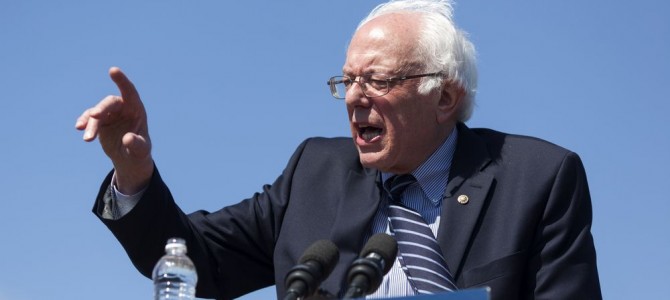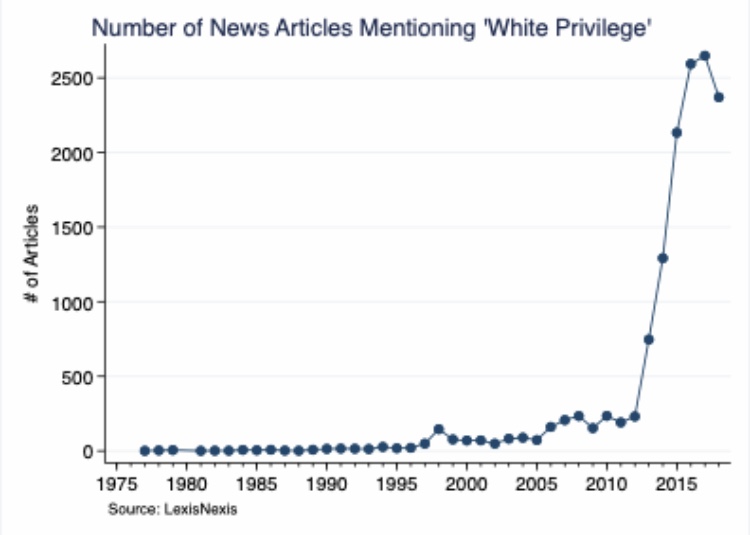
This is part two of a three-part series. Part one can be read here. Part three here
Incubation Under Obama
Barack Obama was a problem for the New Progressive movement. At Occupy Wall Street, many of his policies were attacked, but still with a kind of deference due to him being the first black president. And while Obama may have always been more leftist than he let on — for example, his abrupt “evolution” on gay marriage — he presented himself as a moderate.
Progressives, especially white progressives, had to be careful in attacking him. Some notable black progressives such as Tavis Smiley and Cornel West felt more comfortable taking aim, but in general the New Progressive movement had to bide its time.
During the four years from 2012-2016, the movement made spectacular cultural inroads with everything from movies to news to advertising to corporate culture. By the end of this period, terms like intersectionality and privilege theory had become household words.
In a recent and remarkable Twitter thread, Zack Goldberg shows graphs of searches on LexisNexis for far-left terms like privilege, intersectionality, and a host of others. They go from barely a blip to soaring heights in this period. The beginning of the upswing in almost every case is about 2010, but it wasn’t until 2012, just as the embers of Occupy were dying out, that the vast increases occur.

By the end of 2012-2016, a socialist very nearly became the Democratic Party’s nominee for president, and the New Progressives were poised to capture real political power.
Changing Racial Attitudes
In February 2012, not long after the barricades came down in Zuccotti Park, Trayvon Martin, a black 17-year-old in Florida, was tragically gunned down by George Zimmerman. Martin’s crime? Looking suspicious to Zimmerman.
It was the first of many media-highlighted incidents that cost young black men their lives. Some were even caught on video owing to the promulgation of camera phones. These events, along with a spate of police shootings, spurred the creation of the Black Lives Matter movement and marked a sharp and devastating decline in how Americans felt about race relations.
According to Gallup, at the start of 2013, 72 percent of white Americans and 66 percent of black Americans said relations between whites and blacks were “very good” or “somewhat good.” These were the highest combined numbers ever recorded. By 2015, these numbers went down to 51 percent of whites and 45 percent of blacks, in the sharpest dips in the polling that goes back to 2001.
While these racial attitudes were changing, a growing movement in education, corporations, and social media was bringing intersectional ideas based on privilege theory to the fore and beginning to get some backlash. Where once Americans had a tacit agreement that treating everyone equally was the key to better race relations, the New Progressives rejected this notion, insisting that systemic racism made individuals’ good intentions or actions more or less irrelevant.
Harkening back to the Occupy General Assembly’s progressive stack, what emerged was an attempt to redistribute speech. In practice, this gave the New Progressives license to de-platform, or silence, speakers who would not show deference to the new identity rules. Calls to fire professors, shut down speaking events, and boycott insufficiently leftist companies started to define the New Progressives and further separate them from traditional American liberalism.
The Expansion of Identity Politics
In May 2014, Kevin Williamson penned an op-ed in the Chicago Tribune titled, “Laverne Cox is Not a Woman.” Cox was the star of the TV show “Orange Is The New Black,” and at the time was the most famous transgender person in America.
Cox embraced a new concept of transgenderism. This concept, which Williamson and others (myself included) reject, holds that a trans person does not merely live as, and appear to be a member of, the opposite sex, but in fact is a member of that sex solely on the basis of believing or “knowing” that they are. Williamson rejected this idea in his article. For his trouble, he was shouted down as a bigot, and the Tribune pulled his piece from their pages and website.
This was a major victory for the New Progressives. In the blink of an eye, sex, one of the most foundational elements of humanity, had been turned on its head. This was not a change anyone voted for. There was no meaningful public discussion about it. In fact, as seen above, it wasn’t allowed by a major outlet, instead it was simply decided upon by cultural elites who called any pushback against their radical ideas bigotry.
To justify this illiberal policing of speech, the New Progressives argued that any speech that “misgenedered” a trans person was tantamount to violence against vulnerable trans people. Using this prototype, over the next several years, all kinds of speech was condemned as violence and therefore deemed appropriate for censorship.
Soak the Rich
While the identity politics of the New Progressives was taking over in our nation’s cultural spaces, the socialist fixation on income inequality was gaining important adherents in our politics. Two primary figures emerged to beat this drum, both U.S. senators. Bernie Sanders of Vermont and Elizabeth Warren of Massachusetts used the concept of income inequality to marshal support in the Democratic Party in favor of socialism and away from the neoliberalism of Bill Clinton, and even Barack Obama.
On this fight, the New Progressives found some unlikely allies on the right. Since at least 1992, when Ross Perot ran a centrist anti-globalism campaign against Clinton and George H.W. Bush, both of whom were more or less globalists, anti-globalism has been an outlier in both parties. With the emergence of Sanders in the Democratic Party, this began to change.
The idea of drastically, rather than moderately, increasing taxes on corporations and the richest Americans got a foothold in mainstream Democratic politics. Perhaps more importantly, the word socialist began a rehabilitation tour in the United States. Even though the financial crisis was over by 2012 and living standards were increasing, Warren and Sanders still insisted that American wages needed to be more equal. For many on the left, this became quite persuasive.
From Big Corporation to Small Christian Business
Although the Citizens United decision and a conservative Supreme Court to protect it assured that the New Progressives could not block corporations from engaging in political speech, they soon found a new kind of business to target with illiberal attempts to limit First Amendment protections. In this case, Christian small business owners who refused to accept creative jobs that expressed acceptance of gay marriage were attacked.
The crux of these cases had nothing to with actually serving gay customers, but a baker or photographer using her creative skills to create a positive statement about people of the same sex getting married. These Christian shopkeepers argued that if the state forced their participation in gay marriage, it was compelling them to make statements against their religious principles.
The shopkeepers were backed up by the 1994 Religious Freedom Restoration Act sponsored by Chuck Schumer, then a House representative, and signed into law by Clinton. This law said if the government had a reasonable interest in limiting religious liberty, it must do so in the least restrictive way possible. There were myriad ways for gay couples to get the services they needed from businesses without religious objections; therefore, what interest did the government have that allowed them to take the drastic step of compelling speech?
The New Progressives had now launched a two-front war on the First Amendment. In regard to large corporations, they sought to limit speech. In the case of smaller, Christian-run corporate entities, they sought to compel speech. Compelling speech was also taken up by the emerging trans movement in demands that “preferred pronouns” be used in public settings, even in some cases in Canada, Europe, and New York City passing laws that punished using the wrong pronoun.
But even as universities and media style guides adopted this new normal, new voices started to appear who refused to engage in compelled speech. Bloggers, professors, and YouTube stars that questioned the quick-paced changes in speech regulation began to form a constellation of resistance to the New Progressives. Only later did this resistance come to be known as the Intellectual Dark Web.
Enter Bernie
The most significant event during this period of incubation for the post-Occupy, New Progressive moment was Sanders’s candidacy for the Democratic presidential nomination. Of the three main Occupy platform planks — identity politics, income inequality, and anti-corporatism — Sanders checked the latter two boxes in ways no candidate ever had before.
For the presumptive and eventual nominee, Hillary Clinton, this socialist challenge was uncharted territory. Never before had a mainstream Democrat had to seriously engage such far-left ideas, and it left her positions in a fragile state. Nowhere was this clearer than in regard to the Obama administration’s proposed Trans-Pacific Partnership. Clinton, who had once called the deal the gold standard, suddenly came out against the TPP in the fall of 2015 while campaigning against Sanders.
This shift flew somewhat under the radar because Donald Trump, who at that point had become the presumptive Republican nominee, also opposed the trade deal, although perhaps for somewhat different reasons. But this was part of a larger trend of Hillary Clinton throwing mainstream Democratic ideas, and to some extent her husband’s legacy as president, under the bus. That plan did not work out very well for her.
While covering the 2016 Democratic National Convention in Philadelphia, I saw the largest protests I had seen since Occupy. It is important to understand the virulent anger these left-wing protesters felt towards Hillary Clinton and the Democratic Party. Trump wasn’t the only one chanting “lock her up” in 2016. The overwhelming sense was that a new, young progressive movement was rising either in opposition to the Democrats, or with an eye to taking over their party and platform.
The Democratic Party establishment attempted a kind of rhetorical appeasement. Phrases and ideas from the New Progressives were adopted, but in slight ways. This was meant more to bring them into the fold, maybe even to a seat at the table, but not to acquiesce to them. Had Hillary Clinton become president, this plan might have worked, but indeed she did not.
On the night of November 8, 2016, Trump shocked the world, and won the presidential election. It was a transformational moment in American politics. It opened the door for the New Progressives to increase their influence and venture into campaigning for political office. No longer merely a cultural force to be contended with, they had become a viable political faction in America.
The incubation period was over. The moderate forces in the Democratic Party had lost, and they no longer had the power of Obama’s charm and historical accomplishment to keep the new radically leftist movement conceived at Occupy at bay. Everything changed that night, and the New Progressives were poised and prepared to take advantage of it.
In Part 3, we will look at how the New Progressives used Trump’s victory, and the vituperative anger so many Americans felt towards him to establish a foothold in the highest levels of American power. Had their time finally come? If so, would they push the Democrat Party so far left that its center would not hold?









